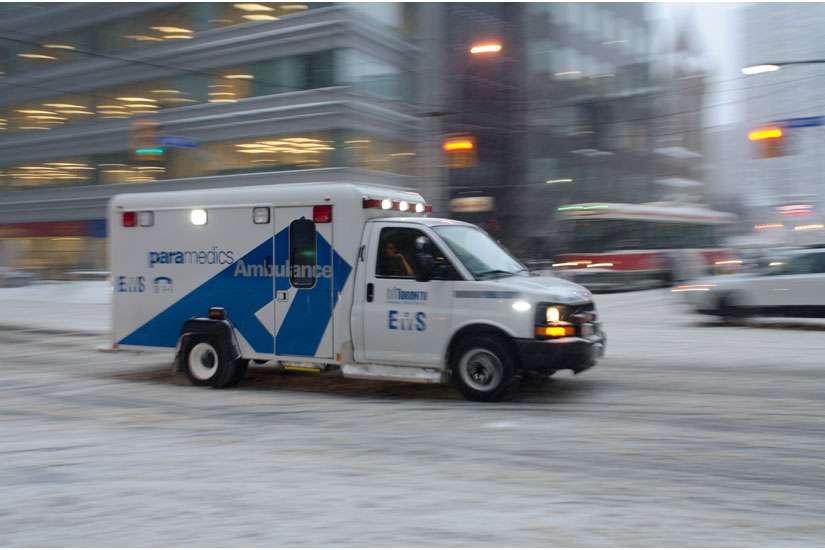On a Sunday night, my father was taken by ambulance to hospital after collapsing. It was serious, but not initially considered life-threatening. But things very quickly got much worse and after heart attacks he slid into a coma and was put on a respirator to keep him alive.
Beginning Monday, doctors tried various procedures to bring him back. It was a vigil for dad’s seven children and their spouses in the waiting room, sometimes all of us there and at all times at least one of us there.
Doggedly, these doctors and nurses worked and worked to save his life. One doctor, in particular, spoke to the family several times per day and he was adamant in his hopefulness and determination. By Thursday, though, doctors had basically run out of options.
At this point in his life at age 73, dad was deep into Alzheimer’s, not very mobile and he’d had four open-heart surgeries over the previous 21 years. None of us wanted to lose him, but we faced reality.
After much discussion Thursday night, the family decided on Friday morning to have dad taken off the respirator. Each of us privately said our goodbyes, then we reconvened around his bedside as the respirator was removed. Moments later, he passed.
I’ve often wondered whether what we did was any different than assisted death. He was only living because of that machine and we simply let nature take its course and place him in God’s hands. And I recognize removing the apparatus is different than injecting something into a terminally ill body to end a life. But at its very core, is it really all that different? In the end, the result is the same.
The Supreme Court made me ask these questions of myself again. Through research and reliving that week, I came up with an unequivocal conclusion in my mind: Perhaps meaning well, the Supreme Court got it wrong. Canada is a lesser nation now that the Supreme Court has sanctioned legal homicide, regardless of intent or circumstance.
And the “slippery slope” argument is real and not to be dismissed lightly. It starts with adults of sound mind who decide to have someone else assist them, but eventually the lines blur and move.
The Netherlands has reported cases such as a woman with a pathological fear of grime and bacteria and a man in his 60s who feared loneliness after his retirement as cases of assisted suicide. These are not terminally ill people, or even people living in insufferable misery.
Indeed, the Dutch end-of-life clinic Levenseindekliniek in The Hague was reprimanded last month for the third time in a year for moving the goal posts on assisted suicide, according to the bioethics newsletter called BioEdge. The clinic helped a woman die because she complained of severe tinnitus, or a painful ringing in the ears. “An independent review commission conceded that tinnitus could satisfy the criteria for legal euthanasia, but said that the clinic should have referred 47-year-old Gaby Olthuis, a mother of two, to a psychiatrist” instead of ending her life, BioEdge reports.
The other two complaints were over an elderly woman who did not want to enter a nursing home and an elderly psychiatric patient. This is what eventually happens in a culture where assisted suicide is legal.
After receiving a slap on the wrist, the director of the Levenseindekliniek clinic was exasperated and his reaction is quite telling. “We try to help people and do it in a very precise and careful manner. We find it annoying that we now have to deal with this for the third time,” Steve Pleiter told BioEdge. The clinic opened in 2012 for patients who could not find a doctor who would euthanize them and it has had 250 customers to date.
Is this where we’re heading in Canada? I certainly hope not, but I fear we are. As a friend said glibly at the Supreme Court’s decision: “It was inevitable. Baby-boomers do not want to be drooling in their cornflakes.” Is someone’s death — even our own — really an annoyance or an inconvenience?
When I reflect back on my father’s last days, I can’t help but think about how hard the medical personnel worked to save his life. It is in their DNA and in their Hippocratic Oath to save lives, not take lives.
The federal government has several options now. This being an election year, it is incumbent upon us to let our Members of Parliament know where we stand on this issue.
My MP has told me she reads this column. Maybe she’ll drop me another note and let me know where she stands and if her party plans to do something about this Supreme Court decision.
(Brehl can be reached at bob@abc2.ca or @bbrehl on Twitter.)


